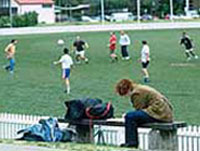|
|||||||||||||||||||||||||||||||||||||||||||||||
| Chinese Legal System (PG) - LAWS8135 | |||||||||||||||||||||||||||||||||||||||||||||||

Description This course is also known as Beijing Winter School (for UNSW Summer enrolment) and/or Shanghai Summer School (for UNSW Semester 2 enrolment).
This is a two-week intensive course held in Beijing and/or Shanghai each year. It provides an introduction into the legal system of the People's Republic of China with particular reference to modern developments in contract and commercial law. China opened up its economy to market forces only in the late 1970s. When it did so, law and the legal system lost the pariah status to which they had been assigned during the Proletarian Cultural Revolution. The course examines the role law is playing in modern China by reference to its historical antecedents. The course examines particular areas of development not only for their own sake but also as indicators of the changing role of law in Chinese society. Areas which are the subject of particular attention include: the elements and institutions of Chinese legal system; the role of law in Chinese society from the perspectives of legal history and philosophy; contract law; intellectual property law; foreign investment law; corporate and securities law; foreign trade law and mediation, arbitration and civil enforcement procedures. In addition to classroom teaching, there will be field trips to Chinese legal institutions including the Great Hall of the People (the equivalent of the Australian Parliament House), a Chinese court and a Chinese law firm. There will also be some travel activities organised to sites such as the Great Wall, the Forbidden City, the Summer Palace, the Sacred Road, the Temple of Heaven and the Yonghe Lamasery. LLM Specialisation to be advised
Recommended Prior Knowledge None
Course Objectives
Main Topics
Assessment This course will be assessed on a graded basis by a research paper of 6,000 words including footnotes.
Students are required to attend 100% of the classes to qualify for the submission of the research paper. Course Texts None. Teaching materials may be provided by the Chinese professors teaching the course in due course.
Resources Refer to the course outline which will be provided by the lecturer at the beginning of the relevant semester.
|
|||||||||||||||||||||||||||||||||||||||||||||||


